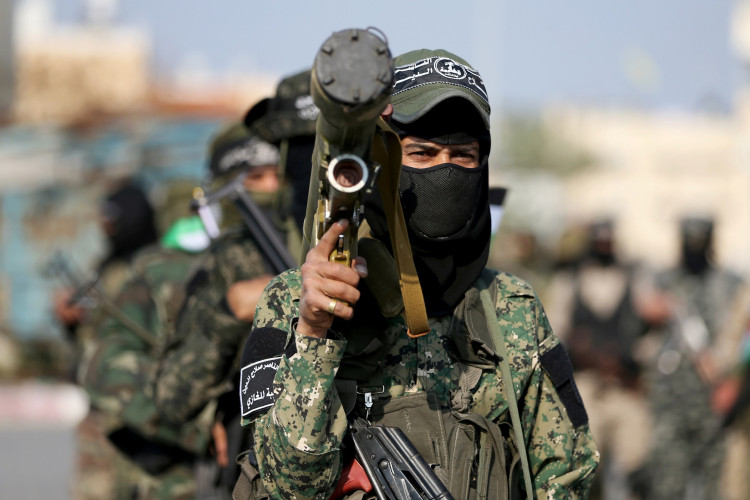In an alarming development that has sent shockwaves through the international community, detailed intelligence dossiers have implicated members of the United Nations Relief and Works Agency (UNRWA) in the Hamas-led terror attacks against Israel on October 7. These documents, which were provided to the United States and subsequently obtained by The New York Times, outline the active involvement of at least ten UNRWA employees in the terrorist operations, including supplying rocket-propelled grenades (RPGs), engaging in direct combat, and even participating in the abduction of an Israeli woman.
Israeli intelligence sources, leveraging sophisticated surveillance including phone tracking and intercepted communications, have meticulously documented the actions of these UNRWA staff members on the day of the attack.
The dossier reveals disturbing details, such as one employee receiving a text message instructing him to bring RPGs from his home for the attack. Another chilling account involves a social worker from the agency, who allegedly facilitated the transportation of ammunition, coordinated vehicles for the terrorists, and even transported the body of a slain Israeli soldier back to Gaza.
Perhaps most harrowing is the accusation against a school counselor from southern Gaza, who, along with his son, is alleged to have kidnapped an Israeli woman, contributing to the more than 200 hostages taken by Hamas terrorists that fateful day. The involvement of UNRWA employees in such heinous acts has prompted the agency to terminate nine staffers implicated in the dossier, as investigations into their conduct continue.
The fallout from these revelations has been swift and far-reaching. The United States, once a staunch supporter of UNRWA under the Biden administration, immediately halted funding to the agency. This decision was echoed by other nations, including Canada, Italy, Australia, the United Kingdom, and Finland, all of which have announced pauses in their contributions pending further investigation.
"The United States is extremely troubled by the allegations that 12 UNRWA employees may have been involved in the October 7 Hamas terrorist attack on Israel," read a statement from the U.S. State Department, highlighting the gravity with which the Biden administration views these allegations.
The European Union's foreign policy chief, Josep Borrell, expressed the bloc's intent to "assess further steps and draw lessons based on the result of the full and comprehensive investigation," signaling a cautious approach to future engagements with UNRWA.
In defense of the agency, UNRWA's Commissioner-General, Philippe Lazzarini, stressed the critical humanitarian role UNRWA plays in the region, especially in Gaza. "It would be immensely irresponsible to sanction an agency and an entire community it serves because of allegations of criminal acts against some individuals, especially at a time of war, displacement, and political crises in the region," Lazzarini argued, underscoring the potential humanitarian fallout from a suspension of aid.
Despite these defenses, the accusations have reignited long-standing criticisms of UNRWA's operations, particularly its alleged tolerance of anti-Israel incitement within its schools and collaboration with Hamas. The Trump administration had previously suspended funding to UNRWA in 2018, citing similar concerns, only for the Biden administration to restore it.
As the international community grapples with the implications of these allegations, the debate over UNRWA's future and its role in the Israeli-Palestinian conflict continues to unfold. With calls for reform, replacement, or even the resignation of UNRWA's head by Israeli Foreign Minister Israel Katz, the agency finds itself at a crossroads, challenged to reaffirm its commitment to neutrality and humanitarian principles amidst the tumult of regional politics and the shadow of terrorism.




